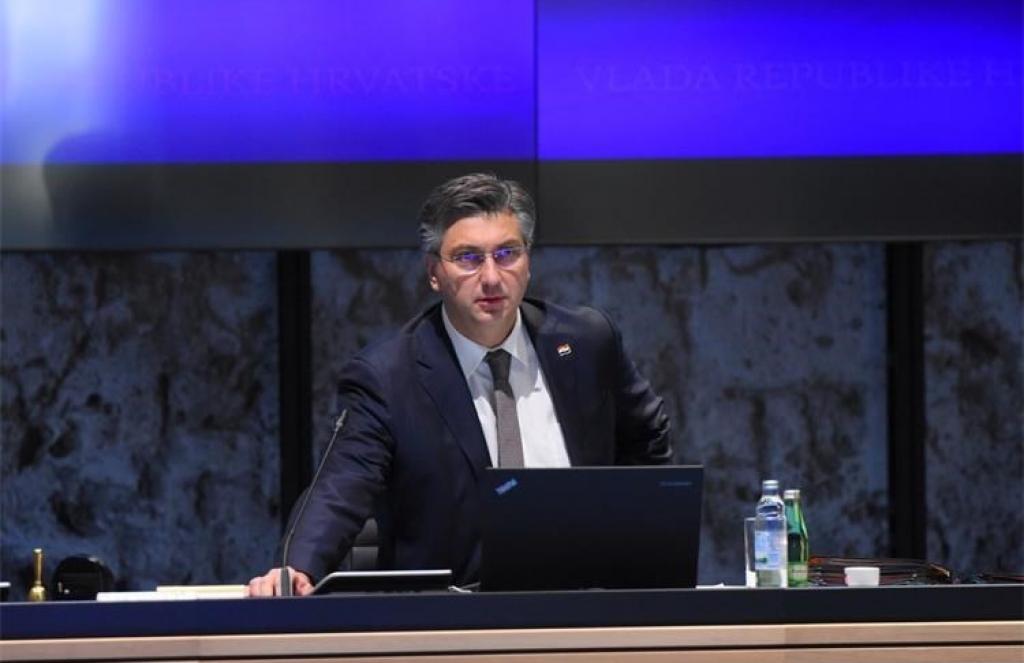Thessaloniki gets ready for its metro launch in November
The underground rapid transit lines have been under construction for almost two decades due to various project delays
 TheMayor.EU logo
TheMayor.EU logo 
Prime of Croatia Minister Plenković , Source: Prime Minister Plenković introduces the mitigation of restrictions / Government of the Republic of Croatia
Economic and social activities in Croatian cities will gradually be restarted
As themayor.eu has already reported, some European countries are now beginning to consider a step-by-step lift of the lockdown restrictions that have hampered almost all economic and social activities. After a decline in the number of infected patients was recorded in the last couple of days, Croatia also announced that it is moving towards the lifting of some restrictions and that it will be implemented in 3 steps.
However, authorities warn that Croatians cannot return to life as it was before the pandemic, as it would jeopardise the results achieved in stopping the spread of the coronavirus. Here is what each step of easing the restrictions will bring for Croatian cities.
The first step in the journey back to normalcy is already set to be taken on Monday, April 27th. Starting next week, all shops, except those operating within big shopping centres, will again be permitted to open. Both public and suburban transport lines, as well as high-speed boat lines for islands not connected by ferry, will be introduced. As of Monday, libraries, museums, galleries and bookstores will also reopen.
Andrej Plenković, the Croatian Prime Minister, announced on Thursday that in the hope that the first phase would prove successful, and with measures to prevent the worsening of the epidemiological situation, a second phase of easing restrictions would follow from May 4th.
Then, the public health system will be fully operational. With respect to all specific epidemiological measures, the full-scale operation of the private healthcare system will be allowed as well.
Step two of easing the restrictions also includes the opening of all economic activities which provide services and which include close contact with customers. This applies, for example, to beauticians, pedicurists, barbers and hairdressers. To take care of neglected pedicures and hairstyles, they will also need to adhere to specific epidemiological measures.
The third phase of mitigation is expected to begin on May 11th. It will bring a permission of gathering of up to 10 people in one place.
However, authorities warn, this still means there should be compliance with social distancing measures. Youngest students will be able to return to their schools, and kindergartens will open.
Shopping centres will also start operating. At this stage, inter-county lines and domestic air services will be reintroduced. With respect to specific epidemiological measures, catering facilities such as cafes and restaurants will be allowed to operate, but only on outdoor areas and terraces. National and nature parks will also open.
Authorities have underlined that the mitigation of the lockdown restrictions calls for complying with all social distancing measures and with the highest hygiene and disinfection standards. All employers must provide working conditions that comply with appropriate epidemiological measures.
When possible, employees should work from home. Meetings should remain online and workers with fever and respiratory problems must stay at home. Public events remain banned. In shops and public transportation, it is recommended to wear a mask.
In Croatia, there are a total of 1981 confirmed coronavirus cases. Fifty people have died so far and 883 have already recovered from the virus.

The underground rapid transit lines have been under construction for almost two decades due to various project delays

Now you can get your wine in Talence by paying directly in Bitcoin

That’s because the state has to spend money on updating the railway infrastructure rather than subsidizing the cost of the popular pass

Rethinking renewable energy sources for the urban landscape

The examples, compiled by Beyond Fossil Fuels, can inform and inspire communities and entrepreneurs that still feel trepidation at the prospect of energy transition

Now you can get your wine in Talence by paying directly in Bitcoin

The 10th European Conference on Sustainable Cities and Towns (ESCT) sets the stage for stronger cooperation between the EU, national and local level to fast track Europe's transition to climate neutrality.

At least, that’s the promise made by the mayor of Paris, Anne Hidalgo

The underground rapid transit lines have been under construction for almost two decades due to various project delays

At least, that’s the promise made by the mayor of Paris, Anne Hidalgo

Hostal de Pinós is located in the geographical centre of the autonomous region

Despite its church-y name, the district has long been known as the hangout spot for the artsy crowds

Urban dwellers across the EU are having a say in making their surroundings friendlier to people and the environment.

Forests in the EU can help green the European construction industry and bolster a continent-wide push for architectural improvements.

Apply by 10 November and do your part for the transformation of European public spaces

An interview with the Mayor of a Polish city that seeks to reinvent itself

An interview with the newly elected ICLEI President and Mayor of Malmö

A conversation with the Mayor of Lisbon about the spirit and dimensions of innovation present in the Portuguese capital














